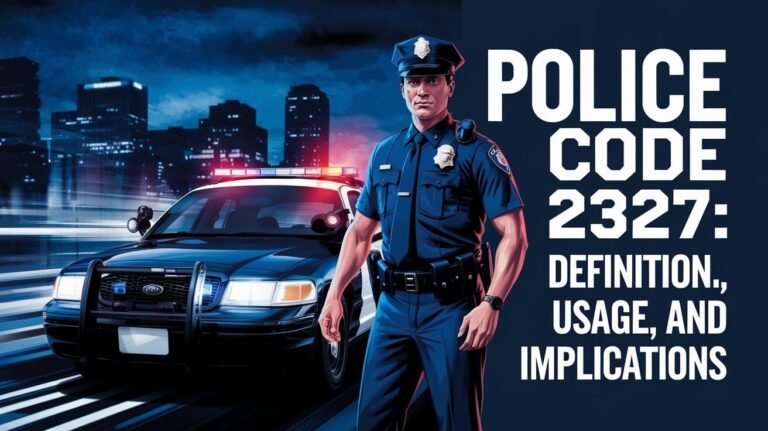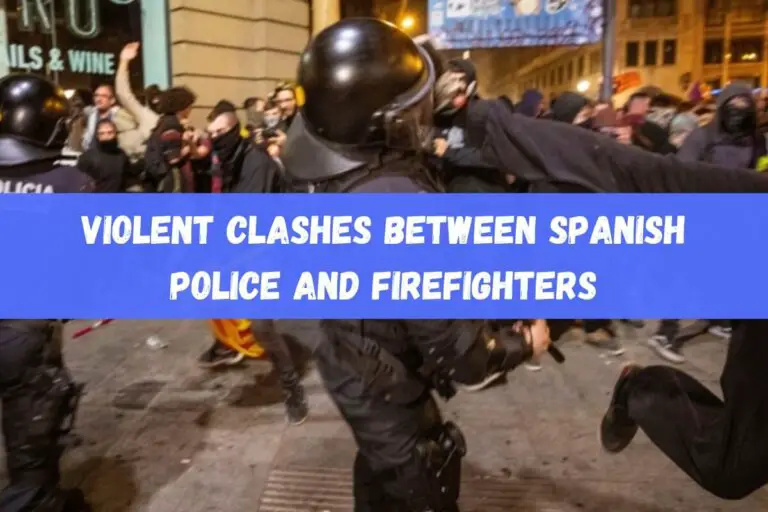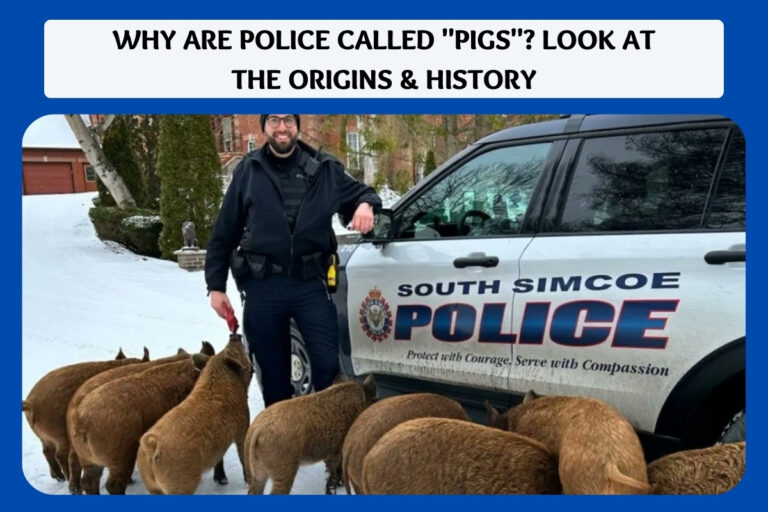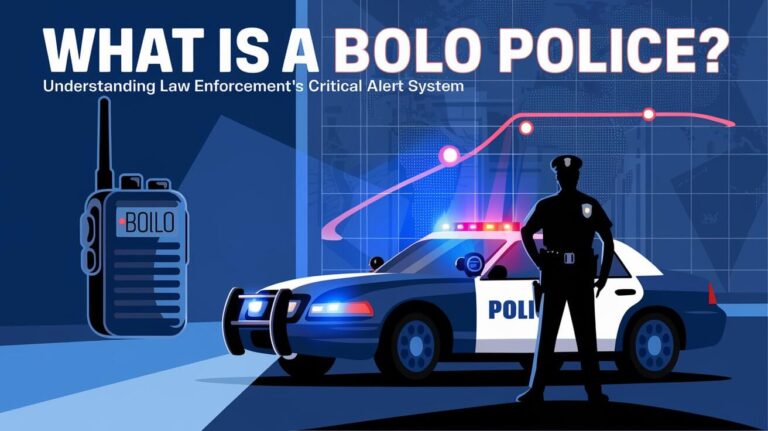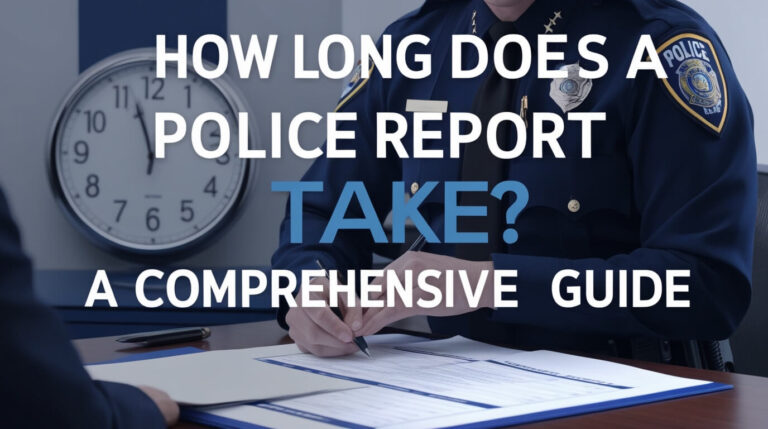What is Police Vice? Guide to Understanding Vice Units
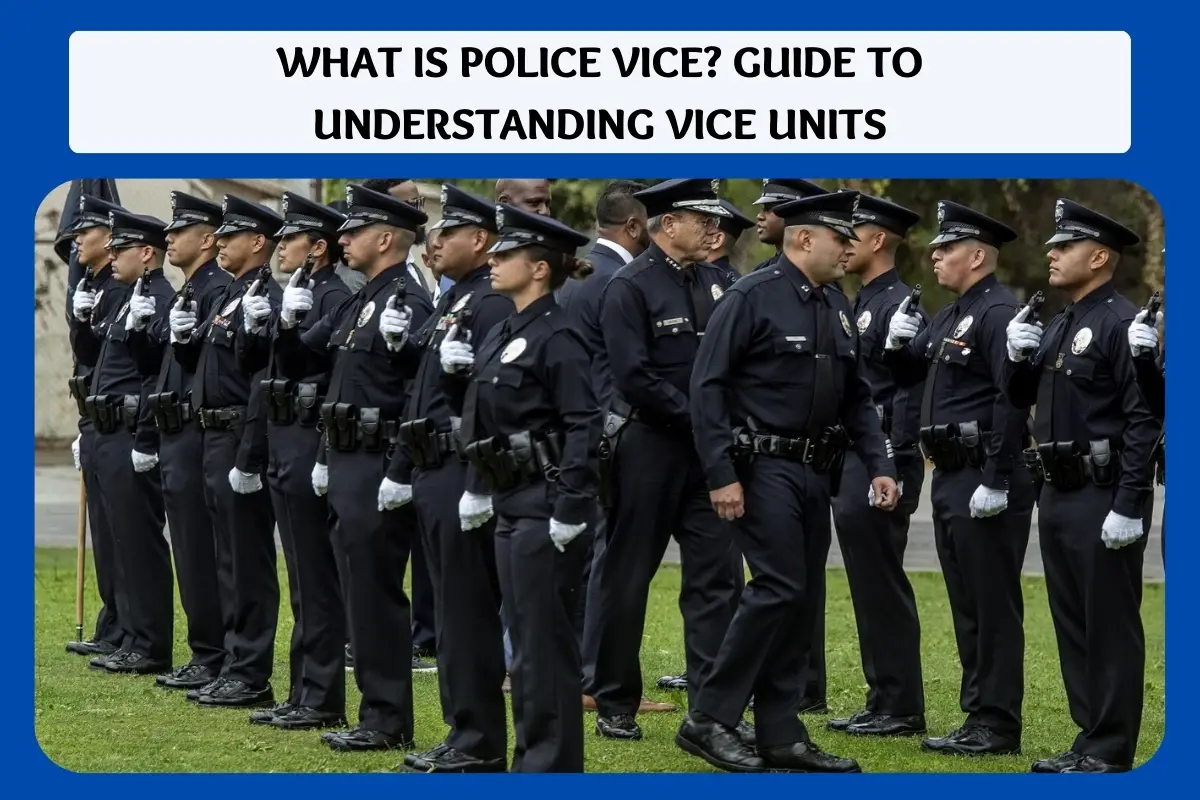
Maintaining law and order in a society often requires addressing activities considered immoral, illegal, or detrimental to the community. This is where police vice units, called vice squads, come into play. But what exactly is police vice, and what are the roles and responsibilities of these specialized law enforcement teams?
Vice units handle crimes involving gambling, drugs, prostitution, and other moral offenses. We’ll explore how vice detectives operate, their duties, and controversies around this policing aspect that impacts communities.
Here’s a brief overview of what we’ll cover:
- The role and responsibilities of vice squads
- A day in the life of a vice detective
- How vice detectives operate and gather intelligence
- The path to becoming a vice detective
- Criticisms and debates surrounding vice operations
So, let’s begin our journey into the intriguing realm of police vice.
Role and Responsibilities of Vice Squads
Vice squads, or vice units, are specialized divisions within police departments tasked with enforcing laws related to various “vice” crimes. These crimes typically involve activities such as prostitution, illegal gambling, narcotics trafficking, and the production or distribution of pornographic materials.
One of the primary responsibilities of vice squads is to investigate and combat these illicit activities within their jurisdictions. This often involves conducting surveillance, gathering intelligence, and executing undercover operations to identify and apprehend individuals engaged in vice-related crimes.
Enforcing Vice-Related Laws
At the core of their duties, vice units are responsible for enforcing a wide range of laws and regulations concerning vice crimes. These may include:
- Prostitution and solicitation laws
- Illegal gambling operations (e.g., underground casinos, sports betting rings)
- Narcotics trafficking and possession
- Distribution or production of obscene or pornographic materials
- Violations of liquor laws and regulations
- Human trafficking and sex crimes
Vice detectives must have a thorough understanding of the relevant state and local laws, as well as the ability to gather evidence and build cases that hold up in court.
Investigating Vice Crimes
Investigating vice crimes often requires a combination of traditional police work and specialized techniques. Vice detectives may employ various methods, including:
- Conducting surveillance operations (e.g., monitoring known vice locations, tracking suspects)
- Going undercover to infiltrate criminal organizations or illicit operations
- Collaborating with confidential informants and utilizing their intelligence
- Executing search warrants and seizing evidence
- Analyzing financial records and tracing money trails
- Utilizing specialized investigative tools and technology
Successful investigations rely heavily on the skills, experience, and perseverance of vice detectives, as vice crimes can be complex and deeply rooted in communities.
Collaborating with Other Law Enforcement Units
Due to the interconnected nature of many vice-related crimes, vice squads frequently work in conjunction with other law enforcement units. These collaborations may involve:
- Partnering with narcotics divisions to target drug trafficking operations
- Coordinating with organized crime task forces to dismantle criminal networks
- Assisting special victims units in cases involving human trafficking or sexual exploitation
- Cooperating with federal agencies (e.g., FBI, DEA) on larger-scale investigations
- Sharing intelligence and resources with neighboring jurisdictions
Effective communication and cooperation among various law enforcement entities are crucial for tackling vice crimes that often transcend geographical boundaries.
Day in the Life of a Vice Detective
Working as a vice detective can be both challenging and rewarding. These specialized officers play a vital role in upholding the law and protecting communities from the harmful effects of vice crimes.
Typical Duties and Tasks
On any given day, a vice detective’s duties and tasks may include:
- Conducting surveillance operations, monitoring known vice locations or suspects
- Going undercover to gather intelligence or evidence
- Interviewing informants or witnesses
- Executing search warrants and making arrests
- Documenting and cataloging evidence
- Preparing detailed reports and case files
- Testifying in court proceedings
- Collaborating with other law enforcement units
- Attending briefings and strategy meetings
Vice detectives must be adaptable, as their work often involves unpredictable situations and rapidly evolving investigations.
Undercover Work and Challenges
One of the most significant aspects of a vice detective’s job is the ability to work undercover. This can involve assuming various personas and infiltrating criminal organizations or illicit operations.
Undercover work is inherently dangerous, as vice detectives risk being exposed or compromised, which could jeopardize their safety and the entire investigation. It also requires exceptional acting skills, quick thinking, and the ability to maintain cover under pressure.
Additionally, vice detectives may face ethical dilemmas while working undercover, as they may need to participate in or witness illegal activities to maintain their cover and gather evidence.
Building Cases and Testifying in Court
A significant portion of a vice detective’s work involves building strong cases that can withstand scrutiny in court. This requires meticulous attention to detail, adherence to proper procedures, and the ability to articulate complex investigations clearly.
Vice detectives must be prepared to testify in court proceedings, presenting evidence and explaining the intricacies of their investigations to judges and juries. They may face challenges from defense attorneys, who may attempt to discredit the investigation or claim entrapment or coercion.
Effective communication skills, a thorough understanding of relevant laws, and the ability to remain composed under cross-examination are essential for vice detectives when testifying in court.
How Vice Detectives Operate
Vice detectives employ a variety of techniques and strategies to gather intelligence, conduct investigations, and ultimately apprehend individuals engaged in vice-related crimes.
Gathering Intelligence and Informants
Intelligence gathering is a crucial aspect of vice investigations. Vice detectives rely on various sources to obtain information, including:
- Confidential informants: Individuals who provide intelligence in exchange for leniency or compensation
- Surveillance operations: Monitoring known vice locations or suspects
- Undercover operations: Infiltrating criminal organizations or illicit operations
- Analysis of financial records and communication data
- Collaboration with other law enforcement agencies and task forces
Building a network of reliable informants and cultivating relationships within communities can be invaluable for vice detectives in uncovering hidden criminal activities.
Surveillance Techniques
Surveillance plays a vital role in vice investigations, allowing detectives to gather evidence and monitor suspect activities covertly. Common surveillance techniques employed by vice units include:
- Physical surveillance: Visually tracking suspects or locations
- Electronic surveillance: Monitoring communications or digital activities
- Covert camera installations: Capturing video or photographic evidence
- Pole cameras: Strategically placed cameras for long-term monitoring
- GPS tracking: Utilizing GPS devices to track suspect movements
Effective surveillance requires patience, attention to detail, and the ability to analyze patterns and behaviors over extended periods.
Conducting Stings and Making Arrests
Once sufficient intelligence and evidence have been gathered, vice detectives may execute sting operations or make arrests. These actions can involve:
- Setting up controlled buys or transactions to catch suspects in the act
- Executing search warrants and seizing evidence
- Apprehending suspects and making arrests
- Securing crime scenes and preserving evidence
- Conducting interrogations and interviews
Proper planning, coordination, and adherence to legal protocols are crucial during these high-risk operations to ensure the safety of all involved and the integrity of the evidence collected.
Becoming a Vice Detective
Pursuing a career as a vice detective requires a combination of education, training, and experience within the law enforcement field.
Qualifications and Requirements
While specific requirements may vary by jurisdiction, most vice detective positions typically require:
- A high school diploma or equivalent
- Completion of a recognized police academy training program
- Several years of experience as a patrol officer or in other law enforcement roles
- Specialized training in areas such as undercover operations, surveillance techniques, and vice investigations
- Excellent communication and interpersonal skills
- Strong analytical and problem-solving abilities
- Physical fitness and the ability to handle potentially dangerous situations
Some departments may also prefer or require candidates to hold a bachelor’s degree in criminal justice, law enforcement, or a related field.
Training and Career Path
The path to becoming a vice detective often begins with entry-level positions as a patrol officer or within other law enforcement divisions. As officers gain experience and demonstrate strong investigative skills, they may have the opportunity to apply for specialized units, such as the vice squad.
Candidates for vice detective positions typically undergo additional training specific to vice investigations, undercover operations, and relevant laws and regulations. This training may include courses in surveillance techniques, interviewing and interrogation, case management, and courtroom testimony.
Vice Detective Salary and Job Outlook
The salary for vice detectives can vary significantly based on factors such as location, experience, and the specific law enforcement agency. According to the Bureau of Labor Statistics, the median annual salary for detectives and criminal investigators in the United States was $87,687 as of 2024.
Salaries for vice detectives in large cities or specialized vice units can potentially exceed $100,000 per year for experienced personnel.
The job outlook for vice detectives is generally positive, as the demand for skilled investigators continues to grow. The Bureau of Labor Statistics projects a 5% growth in employment for detectives and criminal investigators between 2019 and 2029, which is faster than the average for all occupations.
Competition for vice detective positions is fierce, as these roles are desirable within law enforcement agencies. Candidates with substantial experience, specialized training, and a proven record in investigations may have an edge in the hiring process.
Criticisms and Controversies Surrounding Vice Operations
While vice squads play a vital role in upholding laws and addressing harmful activities, their operations have also been subject to criticism and debate from various perspectives.
Ethical Concerns and Civil Liberties Issues
One of the primary criticisms leveled against vice operations is the potential infringement on civil liberties and ethical concerns. Some argue that vice laws, particularly those related to consensual activities like prostitution or drug use, are an overreach of government power and infringe on individual rights.
There have also been instances where vice detectives have been accused of entrapment, coercion, or employing overly aggressive tactics during investigations. Critics argue that these practices undermine due process and the presumption of innocence.
Vice enforcement often unfairly targets marginalized communities like racial minorities and low-income neighborhoods.
Allegations of Overreach and Abuse of Power
Over the years, there have been numerous allegations of overreach and abuse of power by vice squads in various jurisdictions. These allegations range from excessive use of force during arrests to corruption and misconduct within vice units.
Critics argue that the often secretive nature of vice operations, coupled with the discretionary powers granted to vice detectives, creates an environment ripe for abuse. There have been instances of vice detectives being accused of falsifying evidence, planting contraband, or engaging in illegal activities themselves.
These controversies have led to calls for increased oversight, accountability measures, and a reevaluation of the tactics and practices employed by vice units.
Debates on Decriminalization of Vice Crimes
In recent years, there has been a growing movement advocating for the decriminalization or legalization of certain vice crimes, particularly those related to consensual activities such as prostitution, drug use, and gambling.
Proponents of decriminalization argue that criminalizing these activities has not effectively curbed their prevalence and has instead contributed to a thriving underground market, fueling organized crime and exacerbating social issues like human trafficking and addiction.
They contend that a regulatory approach, similar to how some jurisdictions have legalized and regulated activities like cannabis or gambling, could better address public health and safety concerns while also reducing the burden on law enforcement resources.
Opponents, however, argue that decriminalization or legalization would enable and potentially encourage harmful behaviors, leading to increased societal problems and public health risks.
This ongoing debate highlights the complex ethical, legal, and social considerations surrounding vice crimes and the role of vice units in addressing them.
In Short..
In conclusion, police vice units play a crucial role in maintaining law and order by enforcing laws related to activities deemed harmful or detrimental to society. From investigating prostitution and illegal gambling operations to combating drug trafficking and human trafficking, vice detectives are on the frontlines of addressing these complex and often deeply rooted issues.
Vice operations have raised concerns about civil liberties, ethics, and potential overreach or abuse of power. As society changes, these issues will continue influencing vice enforcement laws.
Finding the balance between enforcing laws, keeping communities safe, and preserving individual rights is a difficult but crucial responsibility for law enforcement and policymakers.
For those considering a career in this specialized field, becoming a vice detective requires unwavering dedication, exceptional investigative skills, and a deep commitment to ethical and responsible policing practices. It’s a demanding yet rewarding profession that plays a vital role in maintaining the safety and well-being of our communities.

